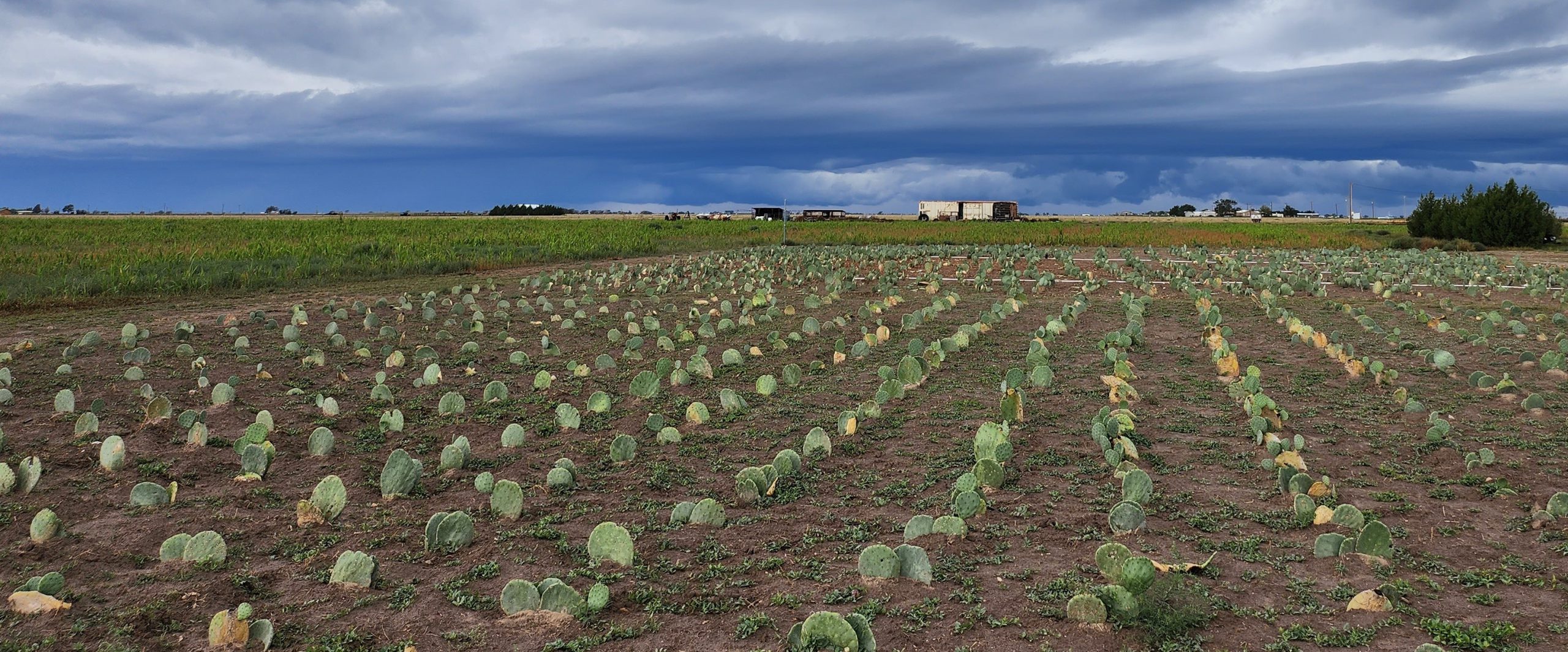
Cactus pads, fruit and seeds are loaded with vitamins, minerals and acids that benefit the skin and hair.
Information provided is a summary of the research performed by West Camp Nopal, LLC and where available references have been identified. West Camp Nopal, LLC does not make any assertions to the findings or results presented herein. We encourage you to independently research and consult with professionals on any of the information presented to form an opinion.
Pads
Pectins and mucilage help heal wounds and burns, provide hydration and have a soft and soothing effect [15]
Fruit
Oil rich with vitamin E and polyunsaturated fatty acids provide anti-aging properties. Seed oil helps prevent wrinkles and stretch marks on the skin [16]
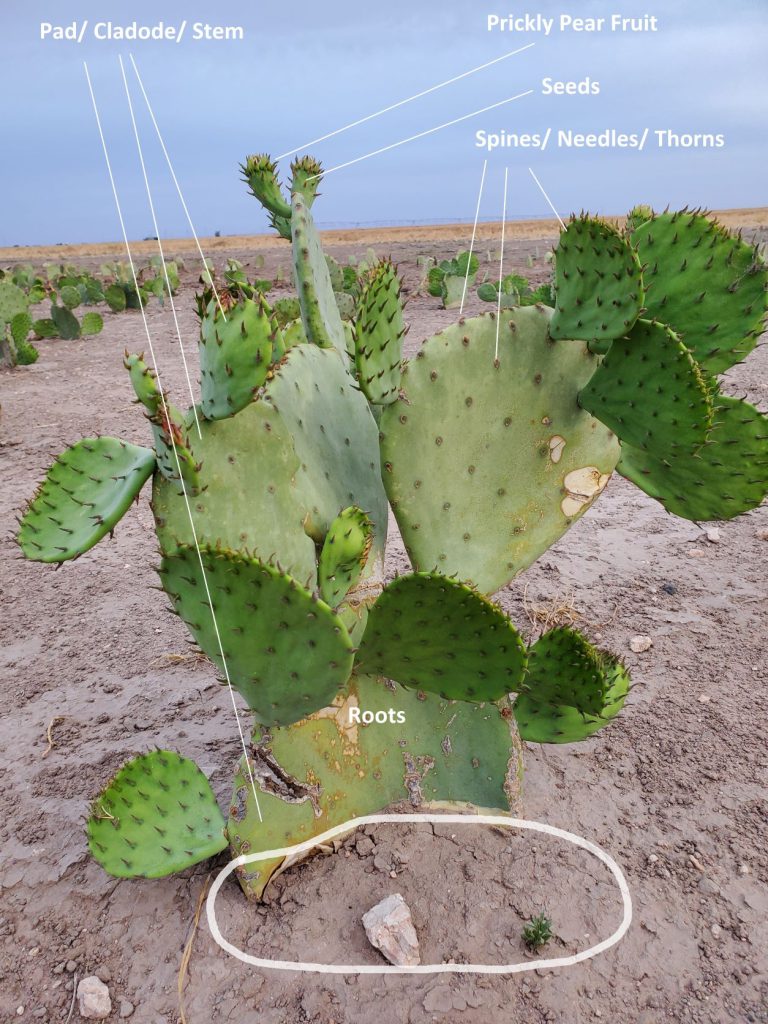
Seeds
Oil rich with vitamin E and polyunsaturated fatty acids provide anti-aging properties. Seed oil helps prevent wrinkles and stretch marks on the skin [16]
Let’s talk Skincare
If you are like me, you are familiar with a lot of the “buzz words” for skincare, but though we may not want to admit it, we may not fully understand what we are “talking” about. Below are two videos that helped me understand what I am “talking about” better.
Personal Care
Research supports
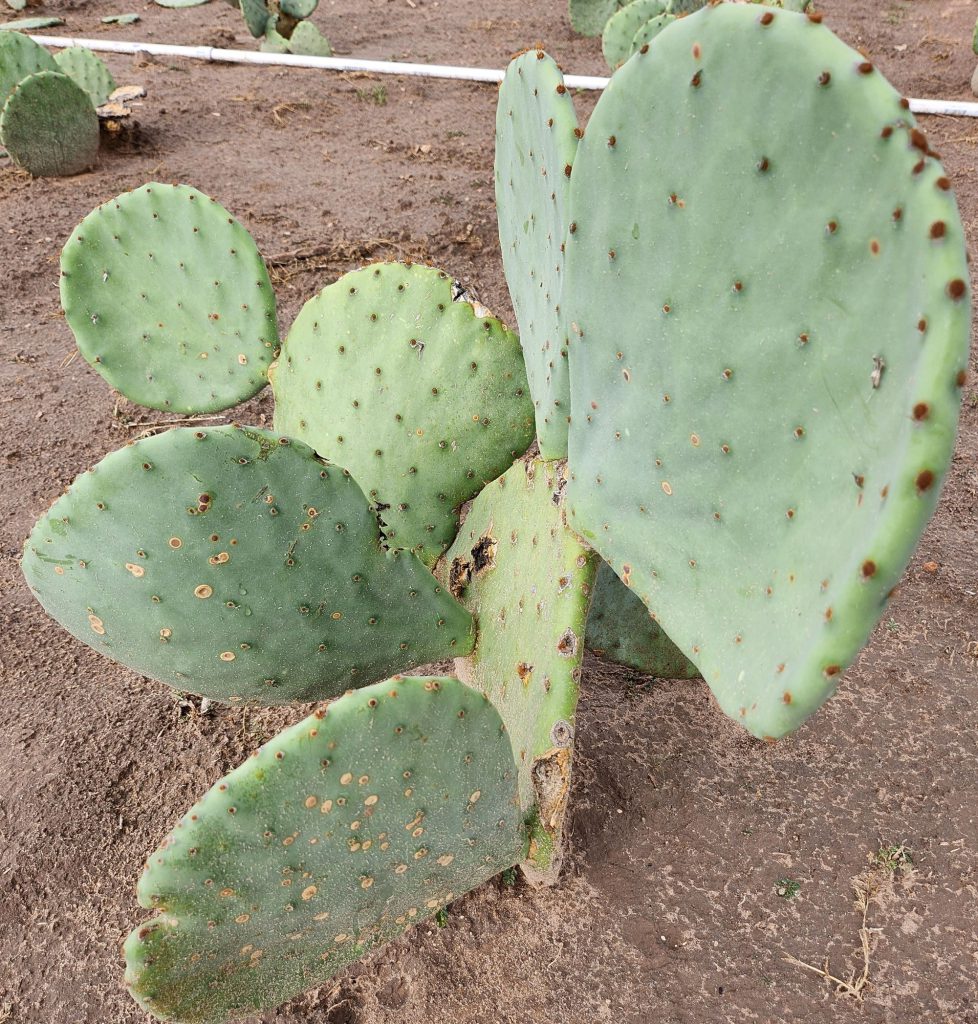
Anti-Acne
Acne can be caused by the accumulation of dirt or oil in the pores, but compounds like linoleic acid found in prickly pear seeds of the nopal have been proven to reduce acne [23][24].
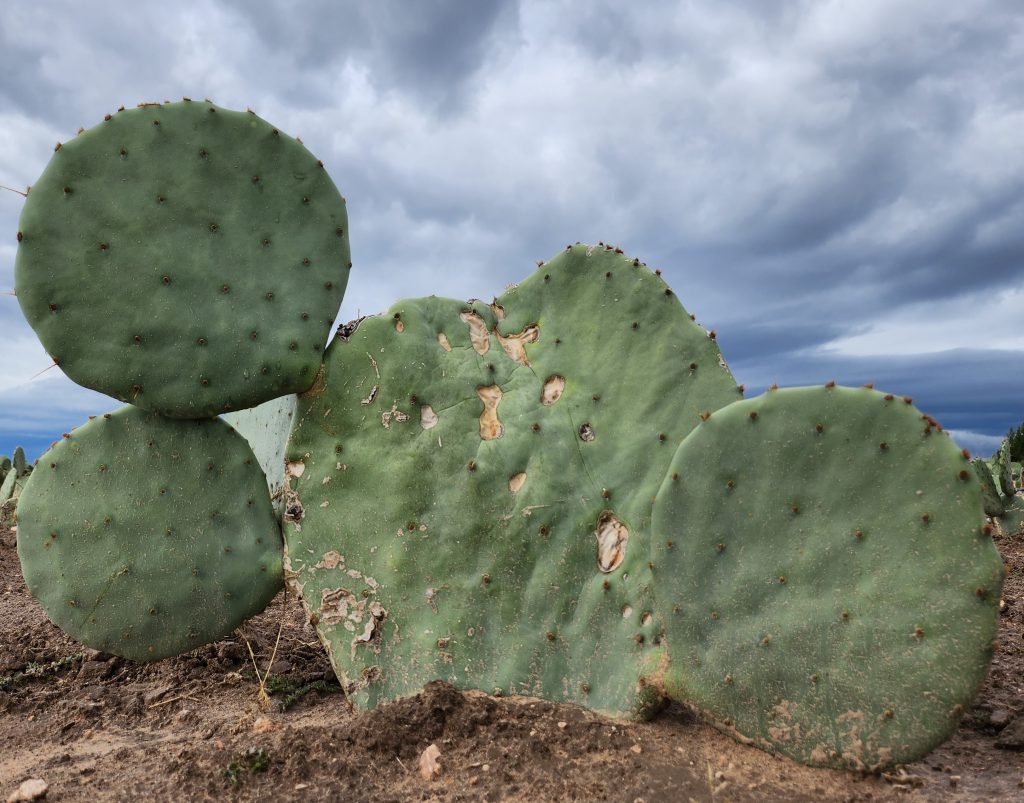
Anti-Aging
A great option for helping a dull complexion and preventing wrinkles or fine lines from forming are the antioxidants in prickly pear fruit [21][22].
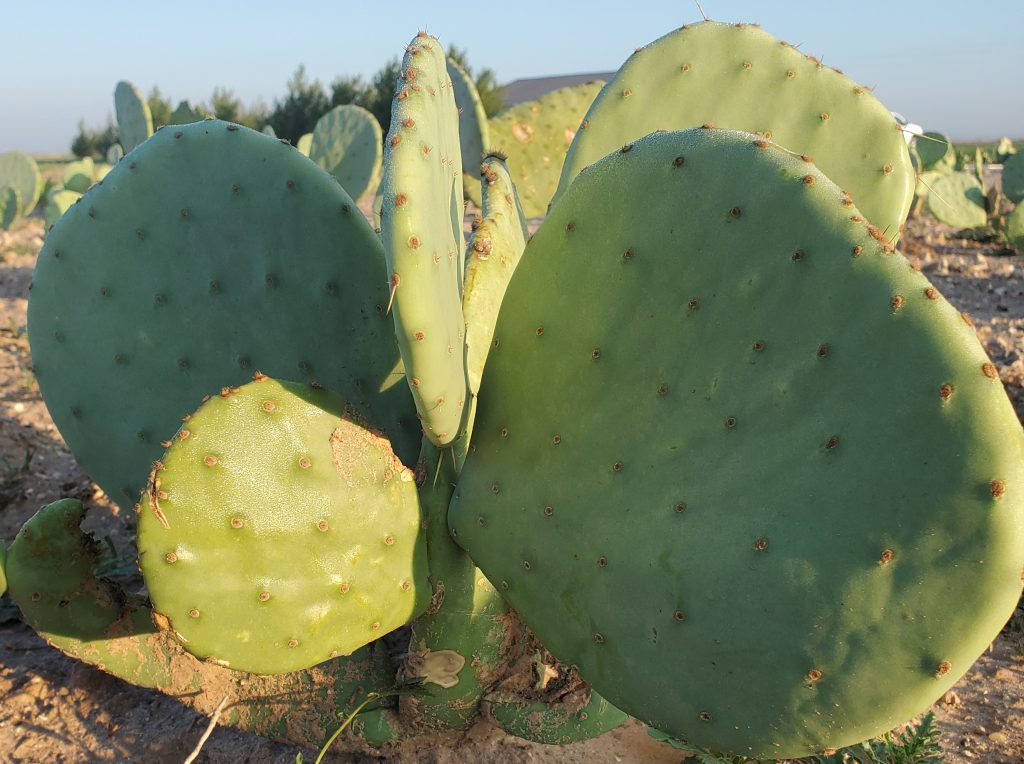
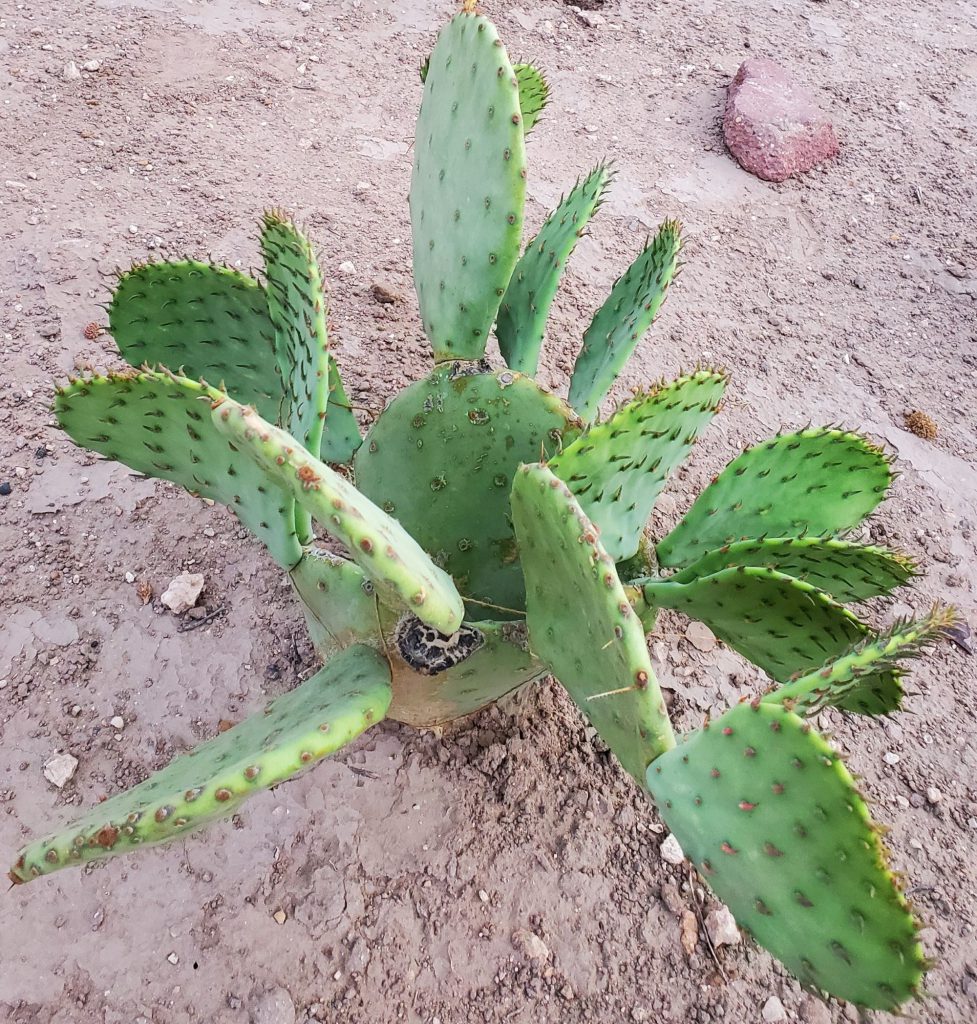
Hydration
Mucilage is the slimy substance in the cactus pads and although it may seem unappealing, when applied directly on the surface of the skin an immediate and observable boost of hydration is apparent. Mucilage forms a soothing barrier to lock in the moisture [17].
Protection
Vitamin C helps protect skin from UV damage and antioxidants. Studies on the external application of vitamin C containing products has shown promising results for skin protection [20].
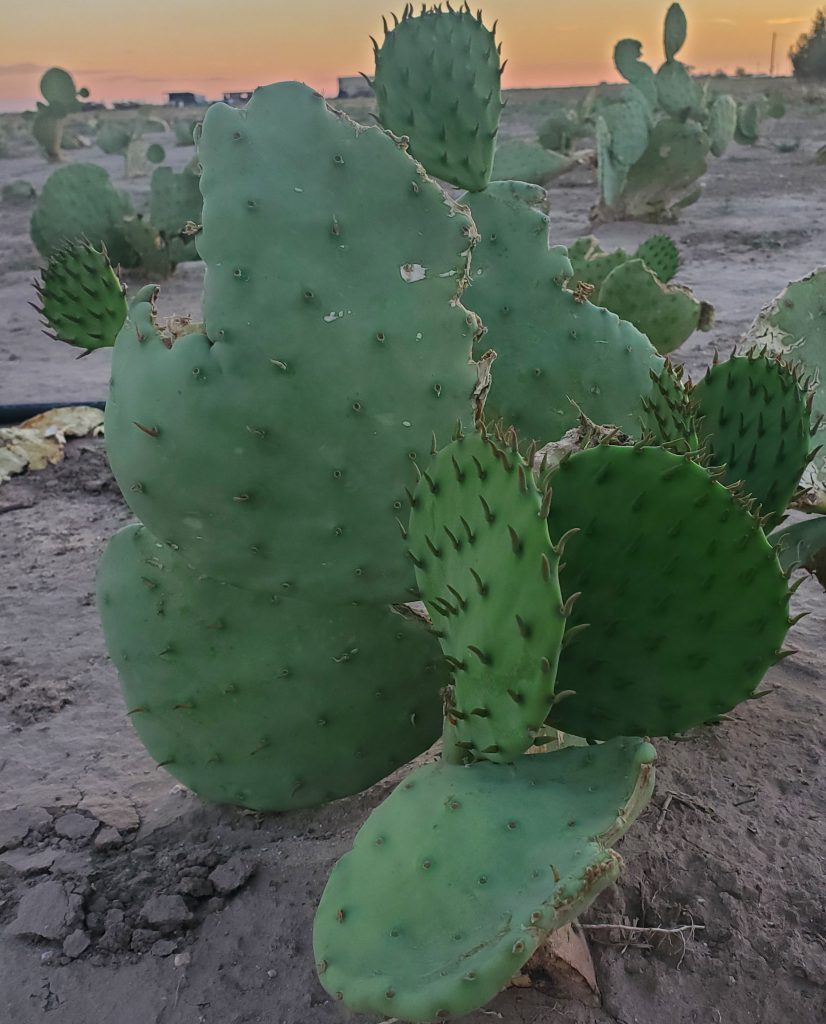
How do I use it?
Several products are available for personal care. A simple Google search for any of the products below with the word “cactus“, will lead you on a discovery path of products with cactus as the key ingredient.
- Cosmetics (Makeup)
- Toners
- Acne Creams
- Moisturizers
- Masks
- Sunscreen
- Hair Conditioners
- Exfoliators
- Gels
- Soap
- Body Washes
References
- El Kossori RL, Villaume C, El Boustani E, Sauvaire Y, Méjean L. Composition of pulp, skin and seeds of prickly pears fruit (Opuntia ficus indica sp.). Plant Foods for Human Nutrition (Dordrecht, Netherlands). 1998 ;52(3):263-270. DOI: 10.1023/a:1008000232406. PMID: 9950087. https://europepmc.org/article/MED/9950087
- LABUSCHAGNE MT, HUGO A. OIL CONTENT AND FATTY ACID COMPOSITION OF CACTUS PEAR SEED COMPARED WITH COTTON AND GRAPE SEED Journal of Food Biochemistry. 2010 Feb;34(1):93-100. DOI: 10.1111/j.1745-4514.2009.00266.x. https://europepmc.org/article/AGR/IND44322904
- Ribeiro RC, Barreto SM, Ostrosky EA, da Rocha-Filho PA, Veríssimo LM, Ferrari M. Production and characterization of cosmetic nanoemulsions containing Opuntia ficus-indica (L.) mill extract as moisturizing agent. Molecules. 2015 Feb 2;20(2):2492-509. doi: 10.3390/molecules20022492. PMID: 25648593; PMCID: PMC6272544. https://www.ncbi.nlm.nih.gov/pmc/articles/PMC6272544/
- Khémiri I, Essghaier Hédi B, Sadfi Zouaoui N, Ben Gdara N, Bitri L. The Antimicrobial and Wound Healing Potential of Opuntia ficus indica L. inermis Extracted Oil from Tunisia. Evid Based Complement Alternat Med. 2019 Apr 14;2019:9148782. doi: 10.1155/2019/9148782. PMID: 31097975; PMCID: PMC6487086. https://www.ncbi.nlm.nih.gov/pmc/articles/PMC6487086/
- Di Lorenzo F, Silipo A, Molinaro A, Parrilli M, Schiraldi C, D’Agostino A, Izzo E, Rizza L, Bonina A, Bonina F, Lanzetta R. The polysaccharide and low molecular weight components of Opuntia ficus indica cladodes: Structure and skin repairing properties. Carbohydr Polym. 2017 Feb 10;157:128-136. doi: 10.1016/j.carbpol.2016.09.073. Epub 2016 Sep 24. PMID: 27987833. https://pubmed.ncbi.nlm.nih.gov/27987833/
- Pullar JM, Carr AC, Vissers MCM. The Roles of Vitamin C in Skin Health. Nutrients. 2017 Aug 12;9(8):866. doi: 10.3390/nu9080866. PMID: 28805671; PMCID: PMC5579659. https://www.ncbi.nlm.nih.gov/pmc/articles/PMC5579659/
- Albano C, Negro C, Tommasi N, Gerardi C, Mita G, Miceli A, De Bellis L, Blando F. Betalains, Phenols and Antioxidant Capacity in Cactus Pear [Opuntia ficus-indica (L.) Mill.] Fruits from Apulia (South Italy) Genotypes. Antioxidants (Basel). 2015 Apr 1;4(2):269-80. doi: 10.3390/antiox4020269. PMID: 26783704; PMCID: PMC4665470. https://pubmed.ncbi.nlm.nih.gov/26783704/
- kandan, P.V.; Balupillai, A.; Kanimozhi, G.; Khan, H.A.; Alhomida, A.S.; Prasad, N.R. Opuntiol prevents photoaging of mouse skin via blocking inflammatory responses and collagen degradation. Oxid. Med. Cell. Longev., 2020, 2020, 1-12. http://dx.doi.org/10.1155/2020/5275178 PMID: 33312336
- Pornthida Riangjanapatee, Mattaka Khongkow, Alongkot Treetong, Onuma Unger, Chutikorn Phungbun, Supatchaya Jaemsai, Chatchaya Bootsiri, Siriporn Okonogi, Development of Tea Seed Oil Nanostructured Lipid Carriers and In Vitro Studies on Their Applications in Inducing Human Hair Growth, Pharmaceutics, 10.3390/pharmaceutics14050984, 14, 5, (984), (2022). https://onlinelibrary.wiley.com/doi/abs/10.1046/j.1365-2230.1998.00315.x
- Özcan MM, Al Juhaimi FY. Nutritive value and chemical composition of prickly pear seeds (Opuntia ficus indica L.) growing in Turkey. Int J Food Sci Nutr. 2011 Aug;62(5):533-6. doi: 10.3109/09637486.2011.552569. Epub 2011 Mar 10. PMID: 21391790. https://pubmed.ncbi.nlm.nih.gov/21391790/
- Antunes-Ricardo M, Gutiérrez-Uribe JA, Martínez-Vitela C, Serna-Saldívar SO. Topical anti-inflammatory effects of isorhamnetin glycosides isolated from Opuntia ficus-indica. Biomed Res Int. 2015;2015:847320. doi: 10.1155/2015/847320. Epub 2015 Mar 2. PMID: 25821823; PMCID: PMC4363586. https://pubmed.ncbi.nlm.nih.gov/25821823/
- Filannino P, Cavoski I, Thlien N, Vincentini O, De Angelis M, Silano M, Gobbetti M, Di Cagno R. Lactic Acid Fermentation of Cactus Cladodes (Opuntia ficus-indica L.) Generates Flavonoid Derivatives with Antioxidant and Anti-Inflammatory Properties. PLoS One. 2016 Mar 29;11(3):e0152575. doi: 10.1371/journal.pone.0152575. Erratum in: PLoS One. 2016;11(5):e0155156. PMID: 27023062; PMCID: PMC4811579. https://pubmed.ncbi.nlm.nih.gov/27023062/